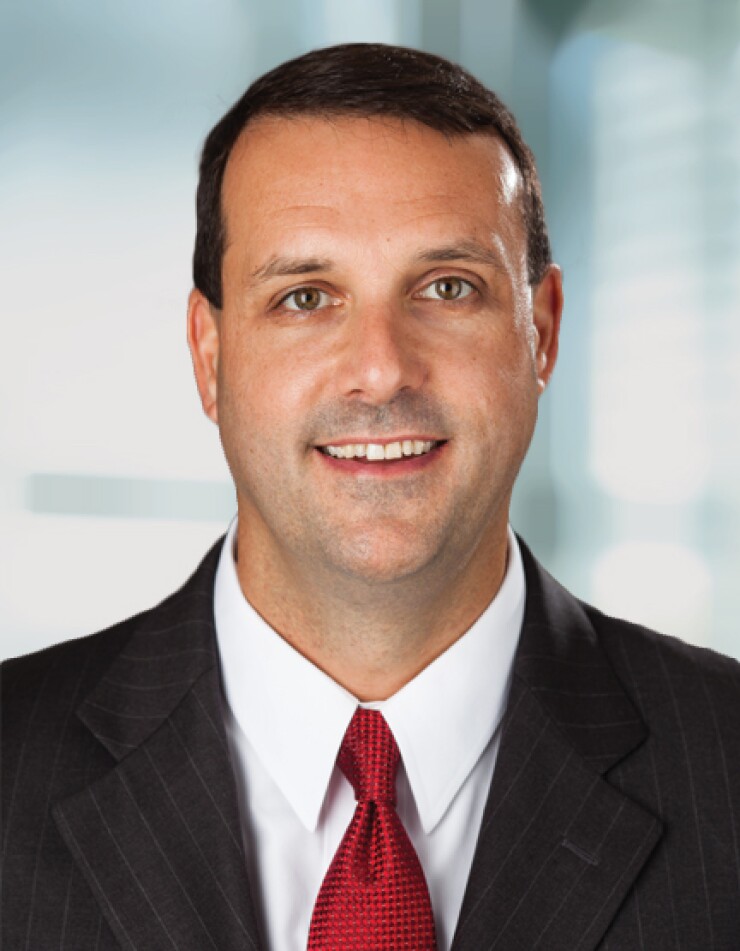Despite the popularity of traditional mortgages at credit unions, many CUs have long stayed away from reverse mortgages – but an unlikely partner aims to change that.
The Federal Savings Bank, a privately held, federally chartered bank based in Chicago is working to form a partnership with CUs across the country in order to offer reverse mortgages to retirement-aged credit union members – a figure that continues to grow, with the baby boomer generation amid a wave of retirements and the average age of credit union members fairly consistently staying in the late forties (48.5 years old, according to 2013 CUNA data). According to the Federal Reserve's Survey of Consumer Finance, 16.2 percent of Americans who identify as head of household report primarily using a credit union instead of a bank, indicating further potential market for reverse mortgages at CUs.

Under TFSB’s program, reverse mortgages will be offered strictly on a referral basis, and “also permit TFSB to educate members about the product and help members in all 50 states,” explained EVP Mike Crossett.
According to the Boston College Center for Retirement Research, about 74 percent of retirees will fall short of their income needs by the time they reach the age of 62 (the required minimum age to qualify for a reverse mortgage). Similarly, data from the National Council on Aging reveals this demographic also has 60 to 80 percent of its net worth tied up in home equity. The Member Advantage Reverse Mortgage Program, explained Crossett, is “designed exclusively for credit unions to fill a gap in mortgage and retirement security offerings and to maximize member satisfaction, retention and growth.”
With such a large portion of credit union members eligible (from an age standpoint) and so many older Americans struggling to meet their financial needs for retirement, why don’t more CUs offer reverse mortgages?
Crossett speculated most credit unions have avoided offering reverse mortgages because of the huge capital and human investment that would be required.
“It’s at least a seven-figure financial commitment, and you also need a strong and competent origination, fulfillment and compliance staff in order to make this a profitable product line,” he said. “Most credit unions do not – or cannot – make this kind of commitment, yet they realize the need exists to serve their senior member segment.”
TFSB’s reverse mortgage program is structured by relieve participating credit unions expense and regulatory burden by providing origination, processing, underwriting and closing services.
Crossett also believes reverse mortgages the public has a negative perception of the product and does not consider it a safe financial product, “but over the past six or seven years, HUD has implemented changes to reverse mortgages that have made it a safe, sound and viable product for seniors.”
These changes, he explained, include a more rigorous analysis of borrowers’ financial assessment and qualification for this loan.
Partners
Those credit unions that do offer reverse mortgages are often more likely to do so in partnership with other entities.
Scott Toler, president and CEO of Credit Union Mortgage Association, said the “large majority” of its partner credit unions do not have the internal structure to offer any mortgage loan products to their members, and therefore CUMA handles all of their mortgages, including reverse mortgages.
“It’s not that they do not offer reverse mortgages – they do, but with the assistance of CUMA,” Toler added.
Toler speculated perhaps some very large credit unions that do not offer reverse mortgages probably avoid this sector because there’s not enough volume to justify offering them.
Last year, the Cooperative Credit Union Association – which serves CUs in Massachusetts, Delaware, Rhode Island and New Hampshire – formed a partnership with Reverse Mortgage Funding LLC to offer reverse mortgages to members of CCUA credit unions. Five CCUA member institutions signed on during the first year, and Reverse Mortgage Funding LLC is reportedly in active discussions with 10 more credit unions.
But those CUs are in the minority, and the vast majority of credit unions – with or without partners – have stayed away from reverse mortgages.

According to Tim Mislansky, SVP of Wright-Patt Credit Union and president of myCUmortgage, suggested many may have stayed away primarily because of the “negative perception” that exists around the product.
“Historically, there have been many issues in regards to lenders that offered these products and stories of consumers taken advantage of,” he elaborated.

Ben Rempe, chief operating officer of LenderClose, a digital lending platform, said one of the reasons most credit unions ignore reverse mortgages is because they are intended for very small percentage of borrowers. “It's hard to make a business case for launching a new product line when you know the volume is going to be low,” he said. “And launching a new product can be costly.”
Jeremy Smith, compliance manager for PolicyWorks, a credit union compliance consultant, said there are two main reasons most credit unions don’t offer reverse mortgages. “The first is the negative image and reputational risk that comes with this product,” he said. “Credit unions don’t want to be seen as a lender foreclosing on someone’s grandparents. It’s also important to note that the CFPB has published several advisory pieces over the last few years cautioning potential borrowers on the risks associated with a reverse mortgage. When the CFPB draws that kind of attention to a product, lenders take notice. In fact, in 2016, the CFPB took action against three different reverse mortgage companies for deceptive advertising.”
The second reason is that credit unions may not be all that informed on the product itself. “Among the providers that offer reverse mortgages today, many offer them as their sole product,” he added. “So, there could be a perception that it requires a ton of resources to offer reverse mortgages.”
Rempe further said that while the spirit behind of the reverse mortgage product may be good, it doesn’t always generate the best result in the long run. “The product is intended for individuals who have an immediate need for cash and have either paid off their home or have achieved significant equity,” he said. “A reverse mortgage provides immediate cash flow to an individual for the rest of his or her life or provides a lump sum upfront with no ongoing payments until the home is sold. However, with the wrong product or lender, the fees and interest can drain equity quickly, making it difficult for heirs to realize any value from a home left to them.”
Ironically, noted PolicyWorks’ Smith, from a compliance standpoint, offering reverse mortgages would not require much more than other products. “It may actually be less of a compliance burden compared to other products credit unions offer today,” he offered.
Growth opportunity?
Joseph P. DeMarkey, strategic business leader at Reverse Mortgage Funding LCC, believes reverse mortgages represent a good growth opportunity for credit unions. “Credit union demographics typically skew older with their member base, and most older American homeowners are financially under-prepared for retirement,” he said. “Credit unions are well positioned to [help] older members decide how to strategically use their home equity to help improve their retirement finances.”

Smith of PolicyWorks asserted that while he doesn’t think reverse mortgages are necessarily a growth opportunity for credit unions, he does think it’s a product credit unions should evaluate and consider. “As baby boomers look for retirement solutions, reverse mortgages are one of many options a credit union could provide to its members,” he said.
But Rempe of LenderClose does not believe reverse mortgages are something most credit unions should pursue and are better off focusing on more conventional mortgage products in an increasingly competitive landscape.
“We're talking about a product that is commonly thought of as predatory,” he said. “Most lenders don't have the expertise to originate this type of loan, and even if they did, it’s unlikely they have a target market large enough to make a strong business case. Credit unions should be looking at ways to originate more mortgage loans -- conforming mortgages, portfolio mortgages, first mortgages, second mortgages and HELOCs are sweets spot for credit unions.”
Credit unions, he added, cannot allow themselves to be pushed out of the traditional mortgage market.
“Competition for traditional mortgage loans is at an all-time high,” he cautioned. “Large banks are aggressively lending. Fintech companies are looking to take loans off credit union's balance sheets. Regional banks and credit unions are merging financial institutions in new markets and are coming after credit union members. With competition increasing, credit unions need to be looking for an edge within the products they already know and service well.”





